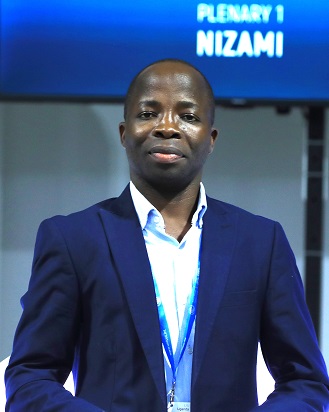Construction Works for the Tilenga Project Industrial Area
The confirmation of commercial oil and gas resources in Uganda in 2006 has since been a source of both pride and high expectation for many Ugandans. Even more so with the launch of the projects in April 2021 and the announcement of the Final Investment Decision (FID) for the Tilenga, Kingfisher and EACOP projects. This comes on the back of Government’s efforts to ensure lasting value to the country, and a suitable return on investment to our partners, the oil companies.
“FID is one of the important steps in Uganda’s journey to First Oil as it signifies the commitment of the oil companies, TotalEnergies EP Uganda CNOOC Uganda Limited and the Uganda National Oil Company to fund the development of Uganda’s oil and gas project. This also means that Uganda’s oil and gas sector remains profitable, even amidst the challenges related to the volatile crude oil prices and the ongoing COVID-19 pandemic. FID, therefore, unlocks the single highest value project in the country, that will bring in an investment of close to $15bn in the next three years within Uganda,” said Irene Batebe, Permanent Secretary Ministry of Energy and Mineral Development.
The Journey to FID
Government’s efforts, since the 1980s, were initially focused on developing the required institutional and regulatory capacity to sustainably manage the oil and gas sector, while promoting investment. “This, to many might have seemed to cause delays, but was a “necessary evil” and has come with benefits. Uganda boasts of progressive laws and regulations, which are being benchmarked on by other countries, some of whom are already producing oil. Uganda has indeed developed a unique model of management of the oil and gas sector, based on lessons learnt from countries that have been successful, and those that have made mistakes,” she added.
Government has also ensured that both the interests of Ugandans and the investors are aligned. This alignment took several years but has culminated into the announcement of the FID by the oil companies.
The preliminary work to set the stage for the launch and construction of these projects has progressed. The Environment and Social Impact Assessment and the Front-End Engineering Design studies for the Kingfisher and Tilenga Development Projects together with the EACOP were successfully concluded. All the land required for these projects has been identified and surveyed. The processes of compensation and relocation of the Project Affected Persons (PAPs) are ongoing. Uganda’s oil and gas project is now both technically and commercially mature, and ready to take off.
What Next?
The technical schedule for the projects indicates that Fist Oil will be achieved 36 to 45 months after taking of FID. These months will be characterized by intensive activity, as FID unlocks the detailed Engineering, Procurement and Construction (EPC) phase for the projects, where the bulk of opportunities lie. This is critical for the Ugandans and Ugandan firms that have and continue to develop the required capacity to harness these opportunities.
Uganda has made significant strides in promoting National Content. The main objective of the country for national content in the oil and gas sector is to achieve in-country value creation and retention whilst ensuring competitiveness, efficiency, and effectiveness.
“In 2020, the ratio of procurements spent on indigenous Ugandan companies went up to 92%, up from 74% in 2019 and 59.6% in 2018. Whereas, this was during a period of relatively low activity, its is indeed a show of the capability of Uganda enterprises. During the peak of exploration (2008 to 2017), the country achieved 28% national content.” Mr. Ernest Rubondo, Executive Director, Petroleum Authority of Uganda (PAU) noted.
Having finalised all the necessary commercial agreements, the IOCs will now swing into the EPC for these projects. The contracts have been unbundled to enable local investors partake on the opportunities. Bid notices for supplies and services are now being advertised and the process of awarding contracts is expected soon.
The EPC contracting processes for the projects is already ongoing; this is being undertaken by the oil companies that have divided the specific projects into different work packages. This will require a wide range of contractors and sub-contractors. The initial opportunities will relate to the pre-drilling and related civil works (including site preparation and some construction), and related supplies. This will require over 3,000,000 tons of local construction materials such as murram, sand, aggregates, and cement. This is just one of the sixteen categories of goods and services that is ringfenced for Ugandans in the National Content Regulations. Another is logistics/ transportation, with close to 300 trucks required per day to transport the construction equipment and materials during the peak period. Even beyond these sixteen categories, Ugandans can create Joint Ventures with non-Ugandan entities to participate in the more technical and specialist works, and hence promote technology transfer.
It is also important to understand the contracting processes involve different levels and/ or work packages, that will each have opportunities for sub-contractors for up to three levels, in some instances.
“Following the launch of the projects, contracts worth US$ 6 billion for over 40 work packages and contracts for the Tilenga, Kingfisher and EACOP projects have been submitted by the licensees to the Petroleum Authority of Uganda (PAU) for approval before award. The Authority manages the National Supplies Database (NSD), a register for entities willing to supply goods and services to petroleum activities.” Rubondo added.
The oil companies are required, by law, to only contract entities registered on the NSD. The NSD therefore enhances national content by giving visibility to Ugandan companies and creates opportunities for joint ventures to improve capabilities. On the other hand, the National Oil and Gas Talent Register (NOGTR), gives visibility to those with oil and gas related skills.
The capacity that Government and its partners are building needs to be sustained beyond the peak period; the NSD and NOGTR will continue to give visibility to the skilled individuals and entities. But also, entities that actively participate need to develop and implement strategies that will see them grow and expand their business into other sectors, especially after the peak period.
Government continues to support Ugandans through collaborations with several entities willing to develop the capacity of Ugandans and Ugandan entities. Recently, the African Development Bank and the Government of Uganda signed a $500,000 grant agreement for financing of Micro, Small and Medium Enterprises (MSMEs). The project, which is being implemented by the PAU in partnership with the Stanbic Business Incubator and other partners, aims to help develop capacity of local Uganda MSMEs along the EACOP route, by enabling them to access new market opportunities, and building linkages with larger, national, regional, and international companies. The project aims to support inclusive private sector growth and the creation of an estimated 500 jobs along the pipeline.
Government established a Petroleum Institute in Kigumba to support the delivery of the required technicians in the Sector. There are other Government vocational training institutions that are offering training programmes relevant for the oil and gas sector and these institutions are so far underutilised. These include: Buhimba Vocational Training Institute (VTI), Kiryandongo VTI, among others.
“This work to have Uganda’s nascent oil industry finally take off has been a long and tedious one; it is only fair to congratulate everyone who has been part of this long journey. Ugandans should focus and utilise this time to continue developing their individual and collective capacity to benefit from the development of Uganda’s oil and gas resources,” said Mr. Rubondo.





